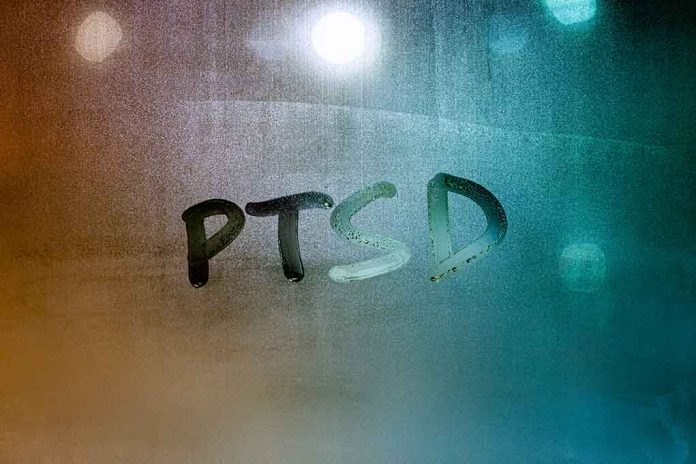
The Multidisciplinary Association for Psychedelic Studies’ (MAPS) groundbreaking trial has begun its journey, exploring cannabis’s effects on veterans with PTSD.
At a Glance
- A federally approved clinical trial will study the impact of cannabis on PTSD in veterans.
- The study involves 320 veterans using real-world cannabis consumption methods.
- FDA approval shows shifting attitudes towards cannabis research.
- Study results could influence future veteran-focused cannabis research.
Clinical Trial Overview
The FDA-approved clinical trial on cannabis as a therapeutic treatment for PTSD in veterans is now underway, led by the Multidisciplinary Association for Psychedelic Studies (MAPS). Involving 320 veterans, this study explores cannabis’s potential therapeutic benefits and risks. Veterans, equipped with moderate to severe PTSD, are the focal participants of this extensive research.
Veterans participating in the trial will utilize cannabis by smoking or vaping, methods aligned with real-world usage. Products with higher THC content, similar to dispensary offerings, are being used. The self-titration model allows veterans to adjust their doses according to personal needs, with limits to prevent overconsumption. This initiative seeks to develop safety data and inform medical professionals, mirroring consumer habits.
FDA’s Role and Legislative Developments
The FDA’s approval indicates a pivotal shift towards high-quality cannabis research, especially in understanding its effects on PTSD. This decision opens new pathways for examining the therapeutic potential of cannabis-derived compounds. Despite current federal classification as Schedule I, the Biden administration considers reclassification to Schedule III, signaling potential policy changes.
This study has been delayed due to FDA concerns over high-potency cannabis and self-titration dosing but now moves forward. According to director of cannabis research at MAPS, Allison Coker, “People are using it for medical use. States are clearing it for medical use, but the FDA has not weighed in on it. We don’t have as many studies and data as we might want, especially we don’t have studies [reflecting] the way that people are using it in the states.”
Sites in Michigan, Arizona, and Florida are being considered for the trials, funded by Michigan’s cannabis agency. The trial’s outcome could be significant in driving legislative efforts to allow VA doctors to discuss and recommend cannabis to veterans. This is crucial, given veterans face challenges discussing cannabis use with doctors due to its classification.
The @US_FDA authorized a study of how cannabis helps veterans suffering from PTSD. I have long advocated for reduced barriers to cannabis research and availability for veterans.https://t.co/OU86mhrePr
— Dina Titus (@repdinatitus) November 23, 2024
Implications for Veterans and Future Research
This clinical trial, led by MAPS, is seen as a catalyst for more veteran-focused cannabis research. Advocacy groups have long pushed for this study as a potential breakthrough in PTSD treatment. Current VA studies cannot prescribe cannabis, highlighting the need for continued research and policy support.
Naomi Mathis expressed concern about veterans being used as “guinea pigs.” Meanwhile, Hether Zeckser, an advocate for cannabis research, notes, “I look forward to the outcome of this research…to see cannabis approved as a PTSD treatment.”
The study involves participants reporting symptoms via a mobile app without receiving mental health counseling. This double-blind study, offering either active cannabis or placebo, focuses on safety data rather than therapy. As marijuana becomes increasingly legal across states, the trial’s findings could steer future accessibility and medical endorsements, offering hope to millions seeking effective PTSD treatments.








